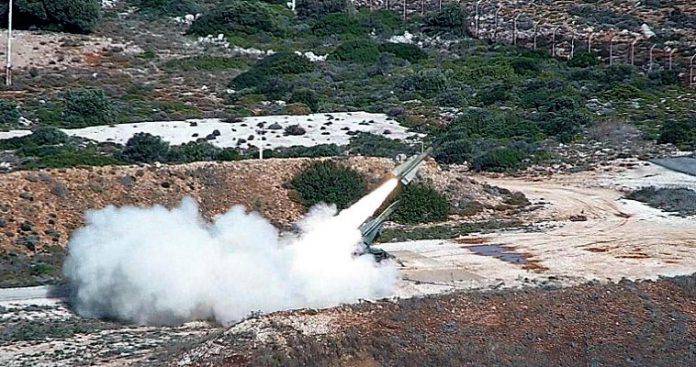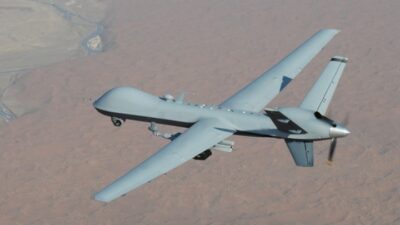Panagiotis Gkartzonikas: What do the Turks really want when they demand demilitarization?
26/09/2020
Although geographical determinism is not explicitly supported, however, there is a widespread view that geography sees Turkey as having only advantages and Greece as having only disadvantages. The purpose of this article is to argue against these views, making a brief historical review, examining mainland Greece and the Aegean area, the latter also in light of the latest rumors concerning demilitarization.
While the natural geographical features – such as land, mountains, rivers, lakes, seas – remain almost unchanged, the same is not true of the people who live there and the relationships they develop over time. It is a fact that Greece, like many other countries, is a geographical “misspelling”. The mainland, which if you remove the Peloponnese which is essentially an island, ony a small part remains, with minimal depth.
Attached to this area is an extended arm that is Eastern Macedonia and Thrace, a strip of negligible depth stretching away from the main trunk. If we add to these the Ionian and Aegean islands and the fact that the demarcation of the northern borders does not comply with some military logic for defense, then the security problem of the Greek area is intractable.
Since the time of the Balkan Wars, doubts have been raised as to whether Greece had the possibility to include Thrace within Greek territory. Venizelos himself even underlined in Parliament in March 1913 the geographical vulnerability of the extension beyond the national trunk to the east, “without a spine”. Ioannis Metaxas also referred to geographical reasons to argue that Greece could not expand to Asia Minor.
The same argument has been argued by many others since then. In the interwar period, concerns about the defense of the northern borders even led to an alliance with Turkey and the consolidation of the Balkan Pact. After the war, the same vulnerability was one of the most important reasons that led Greece to join NATO, so the defense of the Greek border became part of the broader context of the confrontation between the two coalitions.
Uneven geographical distribution
After the end of the Cold War, with the “danger from the north” becoming a thing of the past, at least for the foreseeable future. In the Aegean, Greece managed, aided by circumstance, to occupy all the islands, except Imbros and Tenedos, despite the proximity of the islands to the coasts of Asia Minor and to remain the only ruler, excluding Bulgaria.
The Aegean is predominantly Greek despite the geographical and geological arguments of the Turks, whose coplacency Davutoglu laments, attributing it to the lack of strategy and navy, a situation which Erdogan is trying to overturn today. However, Davutoglu is precise when describing the situation in the Aegean that “the main source of the problem is the bridge between the geological and geopolitical reality and the current regime.”
So Greece keeps Thrace and the whole Aegean despite the geography, and lost Asia Minor for many other reasons, before we get to those of geography. That is, despite the geographical difficulties, Greece has managed for a hundred years to maintain its integrity and we hope to maintain it in the future. Greece is certainly not the only case of a country with such an uneven geographical distribution.
This is because no matter how important geography is, a country’s defense has also to do with other factors, such as: the country‘s determination to defend its territory and prevent potential attackers who must calculate the cost, the attackers may be vulnerable from other geographical locations, power correlations change, or allies are found in common interests.
The geographical advantage of Greece in Thrace
The same geographical areas can offer advantages in one respect but disadvantages in another. The peculiar shape of Greece is considered a disadvantage because in the mainland it lacks depth from north to south, while Thrace is located far from the national trunk with which it is connected with the narrow strip of eastern Macedonia. However, Israel lacks depth not only strategically but also tactically, but managed to virtually increase its depth by using the territory of its opponents and today its enemies have realized that they can not eliminate it.
But geography does not only offer advantages to Turkey. In the region of Thrace, the “contact zone” is limited, only about two hundred kilometers, which allows the deployment of only a limited number of forces, thus failing to take advantage of Turkish numerical superiority. Like Greece in Asia Minor, Turkey can not implement a Schlieffen or Manstein-type plan against Greece, that is, to gather the volume of its forces and seek the destruction of the respective Greeks, in a decisive land battle of annihilation.
This fact should not be overlooked when comparing the land forces on both sides, without taking into account the other potential opponents of Turkey. So the fact that it is not possible to concentrate ground forces is a bigger disadvantage for Turkey than for Greece, while both sides are forced to act “on external lines of operations” as the former would say. In addition, eastern Thrace is separated by the Bosphorus from the Turkish mainland and is therefore vulnerable to attack from west to east and at shallow depths.
The disadvantages of islands
The geographical factor, however important, is not the only factor in play for the defense of a country, as we have said,. The Israelis occupied the Sinai Peninsula in 1967, significantly increasing their depth by reaching the Suez Canal, the largest anti-tank barrier in the world according to Moshe Dayan. After only six years, they realized that the greater depth did not offer them more security.
The extensive island area of the Aegean has two disadvantages for Greece. First, its defense by the military requires an uneconomic dispersion of forces. Secondly, Turkey, on the other hand, by taking the initiative, can attack any of our numerous islands.
This disadvantage, however, is offset, in part, by the fact that amphibious operations are the most demanding, and one can use only certain forces to implement them. Greece should consider the Aegean as a single space, a single theater ofoperations, and not as a sum of islands in a sea area.
The exceptional potential of the islands
The islands offer Greece two serious advantages. First, they can serve as bases for special operations against the beaches of Asia Minor and deal significant blows and severe disruptions to enemy capabilities, far more significantly than in the past.
Second and most important, the capabilities of modern missile systems against surface targets, anti-aircraft weapons and anti-aircraft missiles, also offer new capabilities, previously unthinkable. The islands, operating with these missile systems as a chain of base, in combination with the modern operational concepts of Anti-Access and Area Denial (A2 / AD), can allow Greece to denying Turkey control of the sea and airspace of the Aegean.
Such a perception implies, on the one hand, that ground forces will not wait for the enemy on the coast and, on the other hand, that the air force and navy can be partially liberated from some traditional roles and take on new ones. China is using these perceptions in the western Pacific to prevent Americans from approaching the Chinese coast, using two island chains, remote and close to its shores. It has even gone so far as to “build” islands where they do not exist, to install missile systems on them.
The two pitfalls of demilitarization
The deprivation of the above important Greek advantage is a basic pursuit of Turkey. However, this can be achieved in two ways. The first is demilitarization, that is, for Greece to agree not to install missile systems on the islands. I believe that no Greek government will consent to such a mutilation of such a serious consequences for the country. Nevertheless, there are two pitfalls here.
- The first is to persuade Greece, after coming under pressure, that Greece will refrain from installing “offensive” weapons near the coasts of Asia Minor so as not to threaten Turkey. It is clear, however, that the attacker, in the political sense, is Turkey, while from a strategic point of view, the fact that Greece is on the defensive does not mean that it is simply covering itself to avoid the blows of the opponent.
- The second, and more sly, trap is to claim that we do not accept demilitarization, as long as military units, infantry and others, remain on the islands, but we will not install missile systems on the islands.
The second way is not to make any demilitarization agreement but for Turkey to threaten us, in various ways, to refrain from such an action and we, non-warlike beings, to comply. Of course, we have become experts in justifying such decisions, declaring that although it remains our right, we will exercise it whenever we judge so, sometime in the future, etc.
In conclusion, geography does not determine the fate of a country and it is a myth to claim that our country is at a disadvantage in terms of defense due to geography. The geographical configuration presents serious advantages for Greece, which can be exploited. If we decide not to do so, then geography is not to blame.





